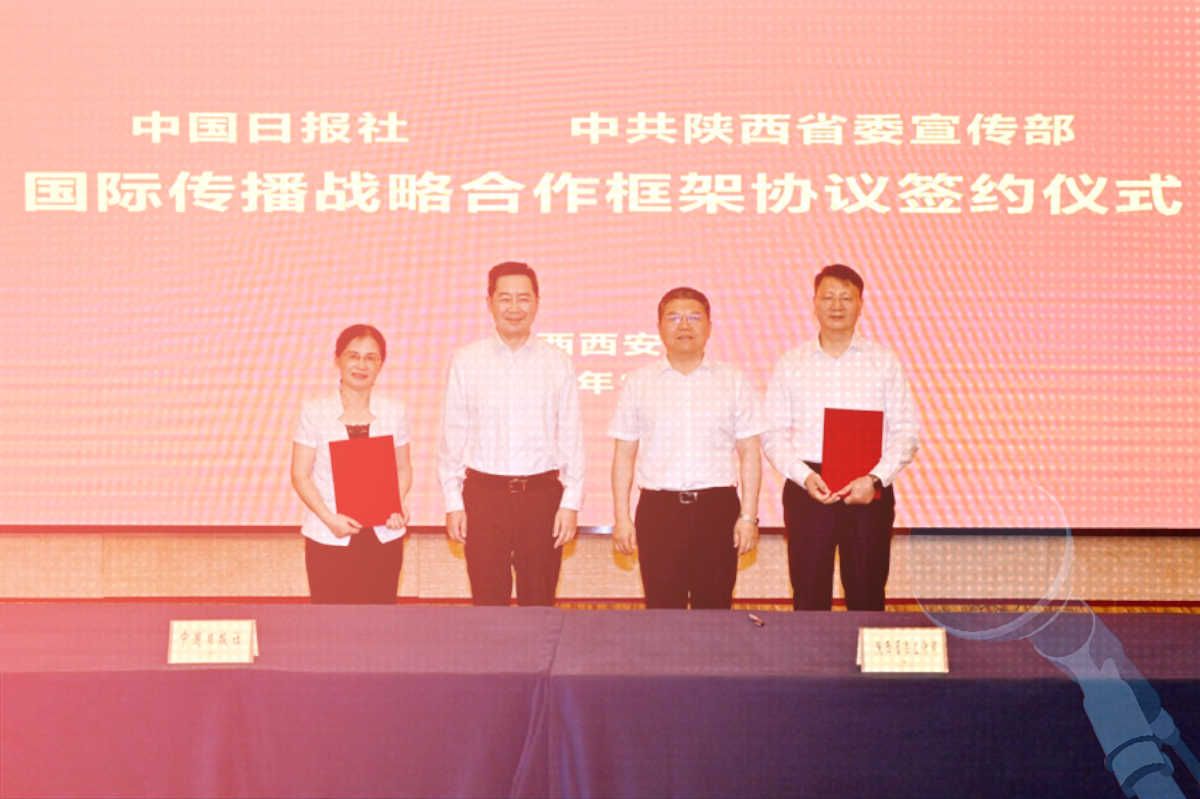Headlines and Hashtags
"Snow Tests China": domestic media reflect more boldly on the government response to recent winter storms
By David Bandurski — According to CMP sources, Chinese Premier Wen Jiabao will issue a report on the government response to recent winter storms in China at the upcoming session of the National People’s Congress.
Meanwhile, Chinese media, emboldened perhaps by whispers of Wen’s report — which, if true, could be read as a green light on “reflection”, or fansi (反思) — have stepped out in recent days with much bolder coverage of the storms and what they reveal about government and society in China.
CMP’s preliminary analysis of coverage in China’s media suggests an increasing number of reports have been devoted to “reflection” on the recent snowstorms since the controversial exchange on February 20 between Guangzhou CPPCC deputy secretary Guo Xiling (郭锡龄) and Ministry of Railways spokesman Wang Yongping (王勇平).
[ABOVE: Screenshot of Southern Weekend online version of February 21, 2008, edition called “Snow Tests China” (雪问中国).]
“Reflection” has been happening across at least 10 broad issue categories over the last week, including:
1. The government’s response to the disaster (政府应急反应)
2. The absence of reflection on the disaster in many local People’s Congress and NPPCC reports (”两会”误事)
3. Management of the electric power grid (电力)
4. Management of the national rail system (铁路)
5. Management and clearing of the national roads network (公路/除雪)
6. The role of civil society (公民社会)
7. Openness of information (信息公开)
8. Social inequalities and the urban-rural divide (城乡二元制度)
9. The role of the Meteorological Administration and preparedness (气象)
10. Secondary disasters (次生灾害) [such as poisoning of drinking water by snow-melting chemicals]
One of the most comprehensive news packages reflecting back on the winter storms came from Guangdong’s Southern Weekly, which devoted four full pages to a series of news features under the title “Snow Tests China.”
The frontpage editor’s note sounded the tone:
Vast human resources were employed to deal with this massive disaster, and some died carrying out their duties. For this, we should all feel thankful. Nevertheless, as the disaster nears its end, we must not suppose reflection and summing up [of the lessons of our experiences] are somehow superfluous, nor should they become taboo.
Points [in need] of summary include: Why were local electrical power networks so weak? How can we ensure our weather warning systems are more timely and offer more guidance? How can the government disaster response system move more quickly? How do we create better synergy between government offices and regions? How can civil society organizations better participate in the relief effort?
The frontpage story, continued on page two, dealt with the trampling death of young migrant worker Li Hongxia (李红霞) in the chaos that ensued at Guangzhou West Railway Station as hundreds of thousands of stranded passengers jostled for places on available trains.
Li’s story is a portrait of telling contrasts. On the one hand, the force of migrant labor fuels the “engine room” of China’s GDP growth. On the other hand, workers like Li are without the most basic protections under China’s two-tiered household registration system.
Joining the Li Hongxia story on page two is an article looking at failed coordination between the China Meteorological Administration and other key agencies like the State Electricity Regulatory Commission (SERC), which oversees the national power grid.
[ABOVE: Screenshot of Southern Weekend report via Chinanews.com looking at the problem of poor coordination between the China Meteorological Administration and other key government offices.]
With the snowstorms coming in the midst of many local people’s congress sessions across China, a number of media have explored the issue of whether local congresses adequately tackled the problems winter storms highlighted (category 2 on our list above).
The Beijing News was one of the first national papers to address this question.
In its lead editorial last Wednesday, the newspaper commented on the “shocking” absence of the winter transport crisis in Guangzhou’s annual government work report (政府工作报告):
Passenger transport for the Spring Festival was a major event for Guangzhou this year, but some people’s congress delegates from the city were shocked to discover as they discussed the government work report that this horrifying transport situation was mentioned only at the very end.
Some explained this by saying that the work report was already completed before people started returning home for Spring Festival. But some delegates have still insisted that more material about the transport situation be added to the government work report.
The editorial goes on to argue that it is within the power of people’s congress delegates to veto the government work report if they feel it is inadequate, even though this veto power has apparently never been exercised for government work reports.
“The relationship between people’s congress delegates and government work reports is patently clear,” The Beijing News argued. “If people’s congress delegates are unhappy with the work report, they entirely have the ability and the power to make it more satisfactory.”
The newspaper concluded:
The most direct monitor of government action is the people’s congress. The people’s congresses must not hold back in telling governments what they should do, and they must, through legally designated channels, check the government and make it change actions that are unreasonable. This is within the power of people’s congresses, and it is also their duty.
Returning to the exchange between local Guangzhou NPPCC member Guo Xiling (郭锡龄) and Ministry of Railways spokesman Wang Yongping (王勇平), columnist and former CMP fellow Yan Lieshan (鄢烈山) wrote last Friday that Wang Yongping should be “ordered by the railway ministry to resign without further ado or else be dismissed.”
[ABOVE: Screenshot of Yan Lieshan editorial on China Elections and Governance Website calling for the firing of the Ministry of Railways spokesman who recently attacked Guangzhou CPPCC member Guo Xiling.]
Why should Wang Yongping step aside?
Given the State Council’s recent “Notice on Arrangements for Rebuilding after the Disaster Response”, the Ministry of Railways should have an attitude of submission, earnestly studying the problems exposed by the recent disaster. “This includes listening to the opinions of various levels of society,” Yan wrote.
Yan Lieshan’s editorial was in fact itself a follow-up on a February 21 piece by Su Wenyang which more politely requested Wang’s resignation on the grounds of his “ignorance for our country’s system of democratic politics (民主政治制度) and his lack of basic respect for the right of CPPCC delegates to voice their views.”
Yan Lieshan’s tone was distinctly more impatient than Su’s:
Someone whose thinking is as ossified and outmoded as Wang Yongping’s, who still deals with their monitors by wielding a truncheon, this guy right out of the old playbook — Why not get rid of him? What are we waiting for?
[Posted Monday, February 25, 2008, 5pm HK]




















